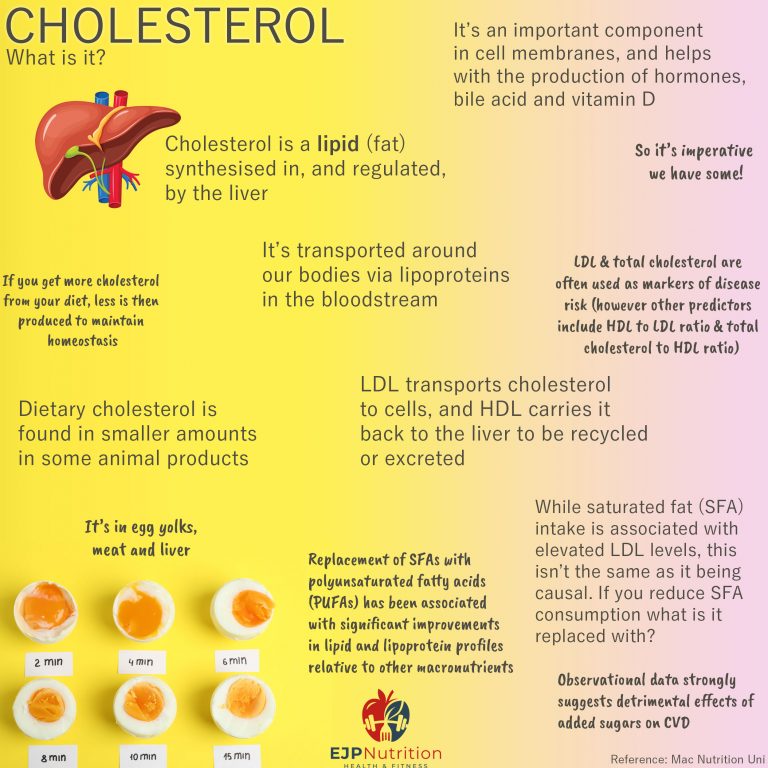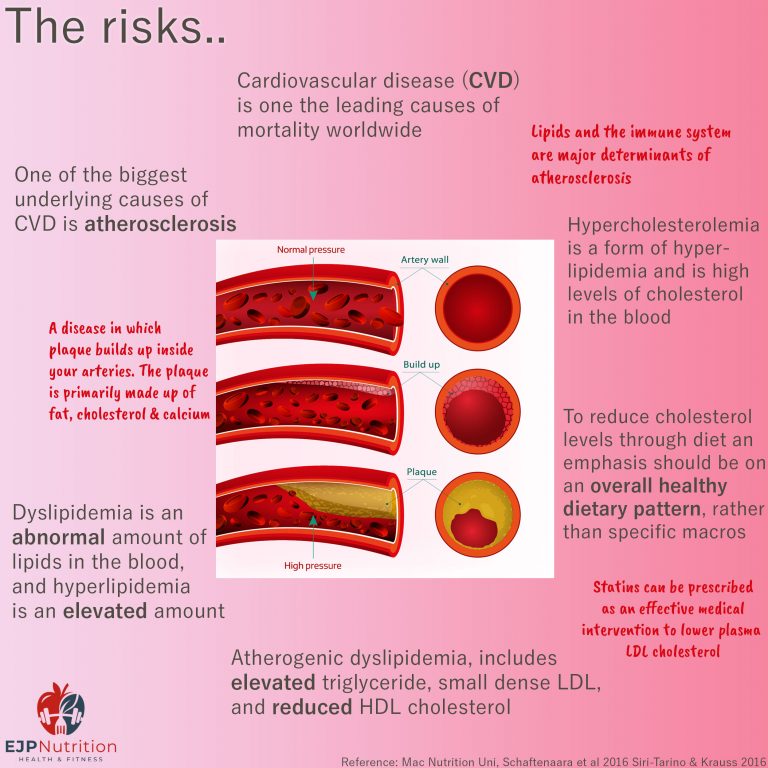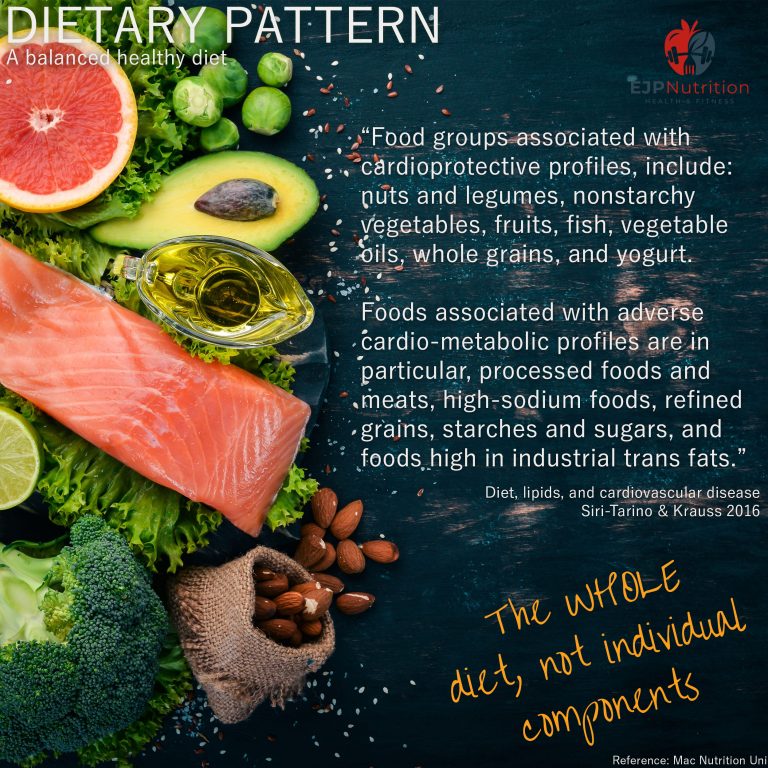Cholesterol is a lipid (fat) that is produced naturally in your body. Contrary to reputation, isn’t always bad. It’s actually really important, & without any you’d be dead! It’s a key component of cell membranes & is involved in the production of sex steroid hormones, bile acid & vitamin D.
Good or Bad Cholesterol
Cholesterol is transported around the body in our bloodstream by lipoproteins (as the name suggests these are made up from fat/lipids & protein). There are different types, usually classed by size/density. The main ones you hear about are LDL (Low-Density Lipoprotein; the “bad” one) or HDL (High-Density Lipoprotein; the “good” one) cholesterol.
The liver is where cholesterol is synthesised & regulated. LDL transports cholesterol to cells, & HDL carries it back from cells to the liver to be recycled or excreted. Having more atherogenic lipoproteins (incl. LDL) increases our cardiovascular risk. In turn having more anti-atherogenic lipoproteins (HDL) lowers our risk.
Hyperlipidemia is when you have too many lipids (cholesterol or TGs) in your blood, which can lead to fatty deposits. Atherosclerosis is the buildup of plaque within blood arteries, which can lead to clots or blockages, as well as increasing blood pressure. This is often a precursor to cardiovascular events/disease.
Diet
Can diet help control blood lipids? Potentially, but it comes back to the general healthy, balanced diet that we so often talk about. High in vegetables, fruit, fish, poultry, whole grains, reduced processed & refined foods. A review found the healthy pattern (less Westernised) was significantly associated with a lower risk of CVD & all-cause mortality, although not stroke. The Mediterranean diet in numerous studies is associated with lower CVD risk too.
Other Factors
Along with improving diet quality, reducing your cholesterol levels comes back to a lot of the healthy lifestyle advice. Regular exercise/activity, not smoking, a moderate alcohol intake & weight loss (even by 5-10%) can improve health markers. I’d be remiss not to mention stress management too, which is a huge risk factor for CVD.
Extra Note
Dietary cholesterol is found in certain foods such as meat, liver and egg yolks. The previous theory had been high dietary cholesterol equals high blood cholesterol equals high CVD risk. However, studies have shown dietary cholesterol has limited effects on cholesterol levels.
The exception regarding dietary cholesterol is that some people (not the majority), are hyper-responders. They are potentially more effected by a high dietary cholesterol intake. In this instance you could try removing it, and then get retested to see if it makes a difference.
I’ve tried to make this a simplified overview. But it’s a very complex area. Triglyceride levels are another consideration for example. Any questions/clarifications needed please send me a message.
References: Mac Nutrition Uni, Millan et al 2009, Herron et al 2002, Li et al 2015, Bo et al 2016, Reedy et al 2014
(Reposted from Instagram)




